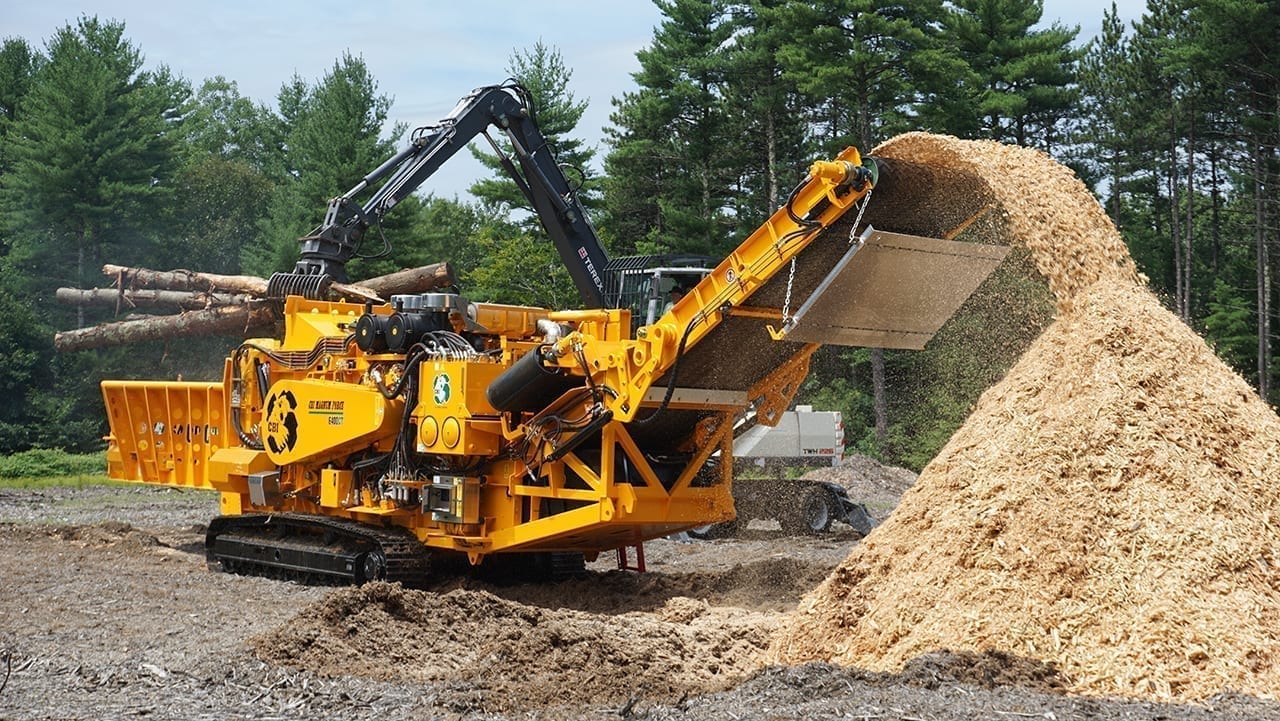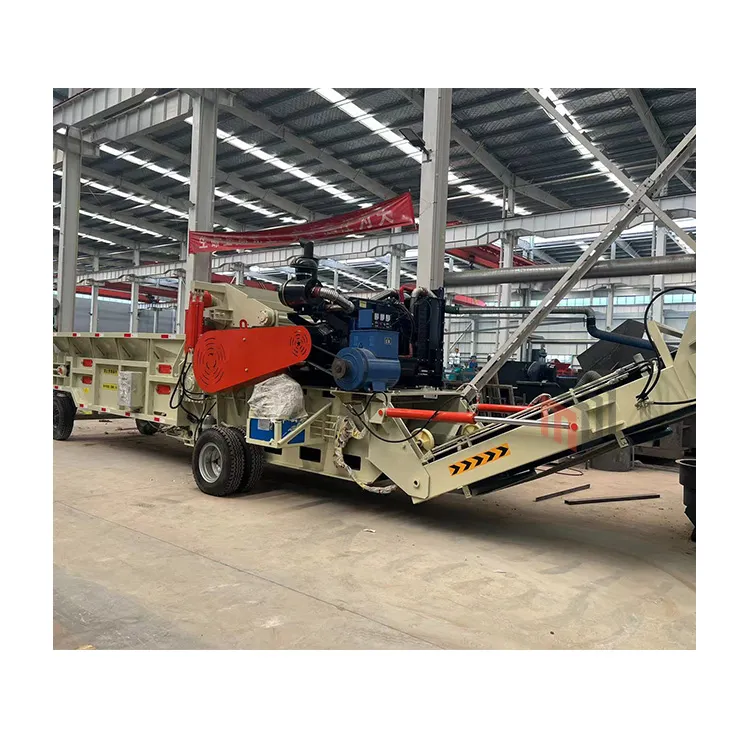Wood Grinders: Elevate Your Operations with Accuracy and Efficiency
Wood Grinders: Elevate Your Operations with Accuracy and Efficiency
Blog Article
Unlock the Prospective of Reusing With Advanced Timber Grinders: Streamline Operations and Minimize Waste
In today's world, the requirement for efficient waste administration and lasting solutions has actually ended up being significantly essential. One such option that holds wonderful assurance is the innovative timber grinder, a modern technology that has the prospective to open the real capabilities of reusing. By enhancing procedures and lessening waste, these grinders provide a novel strategy to dealing with the obstacles of wood waste handling. Yet exactly what makes these devices so powerful? Just how do they boost reusing procedures and take full advantage of source usage? And possibly most notably, exactly how do they add to minimizing our environmental footprint? In this conversation, we will certainly check out the responses to these questions and dropped light on the untapped potential of advanced wood mills in transforming the reusing industry.
Effective Wood Waste Handling
Reliable timber waste handling is essential for improving reusing procedures and making best use of the use of this valuable source. Timber waste, such as lumber, lumber, and pallets, is a substantial result of various industries, including construction, furniture manufacturing, and demolition. To effectively manage and recycle this waste, progressed timber mills have become an essential service.
Advanced wood grinders are made to successfully refine wood waste into reusable products, such as timber chips or compost, which can be utilized for different functions. These grinders use powerful cutting mechanisms and progressed shredding modern technologies to break down wood waste right into smaller, extra convenient items. By decreasing the size of the waste, the mills assist in much easier transportation and storage.
Along with size reduction, progressed wood grinders additionally play a crucial duty in separating contaminants, such as screws and nails, from the wood waste. This guarantees that the processed product is free and tidy from pollutants, making it suitable for a wide variety of applications.
Reliable wood waste handling not only helps enhance recycling procedures however likewise reduces waste. By handling and recycling timber waste, services can decrease their reliance on virgin sources, save energy, and minimize the ecological influence connected with standard waste disposal techniques.
Sustainability in Waste Monitoring
Promoting lasting practices and ecological responsibility, waste monitoring in the context of wood handling includes applying effective and environmentally friendly techniques. In today's globe, where ecological worries go to the leading edge, it is essential for markets to embrace lasting waste management methods. With the boosting need for wood products and the subsequent increase in timber waste, it has actually become imperative to find ingenious remedies that minimize the effect on the setting.
Sustainability in waste management includes numerous crucial elements. First of all, it is essential to reduce the amount of waste produced in the wood processing market. By implementing efficient wood grinding methods, such as utilizing sophisticated wood grinders, the industry can considerably decrease the volume of waste produced. These grinders are capable of refining huge quantities of wood waste into smaller, more manageable items, which can after that be repurposed or reused.
Secondly, sustainable waste monitoring concentrates on reusing and reusing products whenever possible. Timber waste can be changed into beneficial sources such as biomass fuel or compost. By repurposing timber waste, the market can reduce its dependence on virgin products and reduce the demand for land fill area.
Lastly, sustainable waste monitoring includes reducing the ecological effect of waste disposal. Timber waste that can not be recycled or recycled should be thrown away in an environmentally liable way. This might include proper sorting and partition of waste, as well as using technologies that transform waste into energy with procedures like anaerobic digestion or incineration with power healing.
Boosted Recycling Operations
To maximize wood waste administration and make best use of recycling initiatives, the implementation of sophisticated timber grinders is crucial for boosting recycling procedures (wood grinders). These makers use a variety of advantages that can dramatically boost the efficiency and performance of recycling procedures
Among the key advantages of innovative timber mills is their ability to process a variety of wood waste products. From pallets and pet crates to tree branches and stumps, these grinders can properly damage down wood waste into smaller, a lot more convenient items. This not only facilitates simpler transport and storage space yet also enables the recycling of a higher quantity of timber waste.

In addition, progressed wood grinders are equipped with functions that boost security and reduce downtime. These devices are created to run successfully and reliably, reducing the requirement for upkeep and fixings. This allows recycling operations to run smoothly and regularly, eventually boosting performance and lowering prices.
Optimizing Source Application
With the capacity to effectively process a large variety of timber waste products, progressed wood grinders play a pivotal role in optimizing source use within reusing procedures. These devices are created to effectively convert wood waste into valuable timber chips or compost, which can after that be utilized in different industries such as landscaping, biomass power manufacturing, and pet bed linen.
By utilizing advanced wood mills, reusing procedures can considerably decrease the amount of timber waste that winds up in garbage dumps, helping to conserve beneficial garbage dump area and reduce ecological influence. The processed wood waste can be repurposed and used as a renewable energy, adding to an extra round and lasting economy.
Moreover, progressed wood grinders enable reusing procedures to extract the optimum value from timber waste materials. These equipments have the ability to produce regular and top notch timber chips or mulch, which can be offered as valuable items on the market. This not just creates income for recycling procedures but additionally develops opportunities for the growth of new markets and collaborations.
Along with making the most of source usage, progressed wood grinders additionally contribute to the general performance of great site recycling procedures. These machines are created to deal with huge volumes of timber waste quickly and successfully, reducing handling time and labor expenses. They additionally have safety and security features and advanced technologies that guarantee dependable and smooth operation, reducing downtime and optimizing performance.
Lowering Ecological Impact

One of the crucial advantages of utilizing sophisticated wood grinders is the manufacturing of valuable products from timber waste. These mills have the ability to transform wood waste into wood chips, compost, or biomass gas, which can be made use of in various sectors such as energy, landscape design, or construction production. By changing waste into beneficial items, these grinders add to an extra sustainable and circular economic climate.
In addition, advanced wood mills are outfitted with sophisticated innovations that improve their effectiveness and reduce power usage. They are developed to manage huge quantities of timber waste in a short quantity of time, allowing recycling procedures to enhance their procedures and boost productivity. This not only decreases the ecological impact of reusing operations yet additionally enhances the total effectiveness of wood waste management.
Conclusion
To conclude, progressed wood mills use an appealing solution to unlock the potential of recycling by decreasing and streamlining procedures waste. These mills enable efficient wood waste handling, enhance recycling operations, make best use of resource application, and minimize the ecological footprint. wood grinders. By embracing these modern technologies, organizations can add to an extra lasting waste management system, guaranteeing the efficient use of official site sources and lessening ecological effect

Report this page